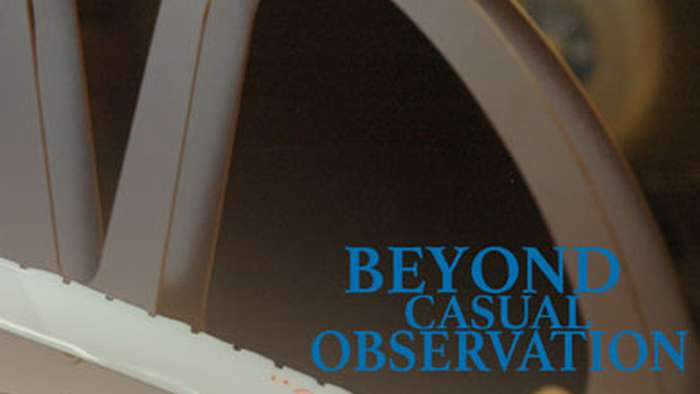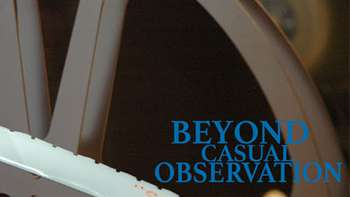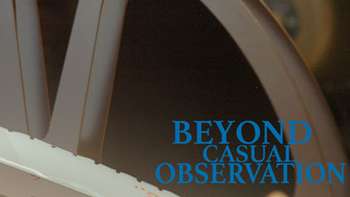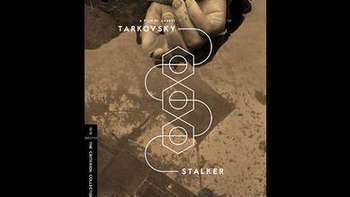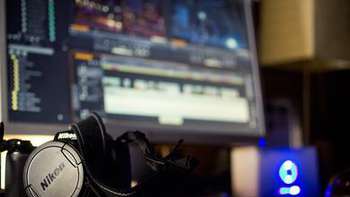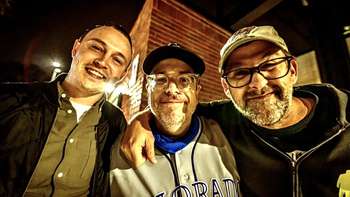Thanks to insight from professionals in the field, and the freedom to explore the use of sound in film, Beyond Casual Observation has featured a broad look at the functions of a soundtrack in film.
Soundtracks are defined literally as the track of all sounds, and more commonly as a collection consisting of songs, scored and/or western form, for example--possibly a collection of ambient sound. These sounds, the music and more, intersect with performances in front of, and behind, the camera to tell a story. The incredible trait in sound is its versatility. Sound and songs create mood, convey messages about a range of things from the characters to the environment, and emphasize the presence of action or dialogue on a screen.
I recently watched Vertigo, The Warriors, and Green Room. Those three titles organically created the foundation for this entry in Beyond Casual Observation.
Vertigo (1958) - Dir Alfred Hitchcock
There 42 cues totaling 74 minutes on Vertigo’s soundtrack.
Vertigo’s soundtrack is a tribute to the harmony of sound and film. Beyond its obvious sensory use, its use as a storytelling technique is representative of the power that sound wields in filmmaking.
By mirroring particular instrumentations to the plight of the main character, other times creating cues that heighten a moment, and composing incredible long runs, Bernard Herrmann gives an exemplary performance of the many roles of sound in film. In Vertigo, the music captures and helps tell the story nearly as much as the camera without fighting for attention. Hitchcock works with the soundtrack, at times contentiously placing the music against the setting, and pushes the music to help give the film depth rather than resorting to exposition. Given the complexity of the plot, and the relationship between the characters, as well as the psychology of our main character, using the sensory element of music to enhance the setting turns out to be such a treat for the viewer. Moments, details and the picture as a whole, are aided by Hitchcock’s inclusion of Hermann’s work throughout the film.
This is an exceptional example of layered storytelling and the use of sound in film. The moments are alluring and the longer sections enchanting and hypnotic. And it was 1958. Splice some older essentials into your viewing habits.
The Warriors (1979) - Dir Walter Hill
Barry De Vorzan wrote an amazing intro track for this movie, as featured here. It sweeps us in and lowers our guard. The groove in the track helps us find our groove in the movie, and it does it quickly. Our sense of momentum and traction within the story occurs through that intro.
As a whole, the soundtrack feels big. Big choruses, hooks, and songs whose lyrical content help make the environment bigger (“In the City”), describe the seriousness of the characters (“Love is a Fire”), and create an emphasis for everything on screen. In its entirety, The Warriors features a listener-friendly soundtrack that functions as a fun mix of songs for the movie.
Green Room (2016) - Dir Jeremy Saulnier
Green Room is relentless, visually dark, and disturbing.
The band featured in the movie, the Ain’t Rights, is of course portrayed by actors and they actually played the songs for the film, all of whom ranged from experienced to novice musicians. The songs are perfectly fitting choices for the film and for the fictional band in it to play (the songs are covers but presented as the movie band’s original work). There is additional music in addition to the Ain’t Rights songs, while Brooke Blair and Will Blair offer scored tracks that help the viewer succumb emotionally to the movie.
Green Room’s soundtrack is essentially a summary of the movie and the emotions, describing a band whose next tour date goes completely awry, taking everyone on a horrifying journey. I included “Mosh Pit” to highlight the value of context to a soundtrack. That track might not evoke a mosh pit until you see the film. It is a solid track, but it has more depth with a viewing of the film.
Soundtracks dislodge the music from a film for the sake of a separate collection of music and sounds. A lot of the time we are lucky to have an amazing listening experience. There are incredible releases of soundtracks happening and most are nothing short of glorious in the quality of sound and presentation.
Establishing mood, capturing feel, creating a sensory experience, and being a tandem member to the performances going on in a movie, soundtracks are essential transcripts of conversations occurring in film.
